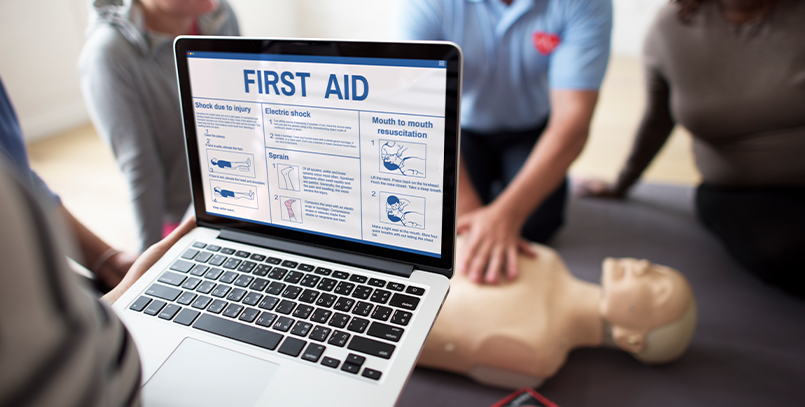Cardiopulmonary resuscitation (CPR) refers to emergency procedures performed to manually preserve brain function until further measures are taken to restore spontaneous blood circulation and breathing in a person who is in cardiac arrest. Learning CPR can mean the difference between life and death for someone in your life. Here in Winnipeg, it is easier than ever to sign up for CPR Training Winnipeg to equip yourself with these potentially lifesaving skills.
Who Should Take a CPR Course?
CPR Training Winnipeg is invaluable for people across all walks of life. Here are some examples of who can benefit from taking a CPR class:
- Parents, babysitters, grandparents, and others who care for children. Kids can choke or nearly drown in everyday settings. Knowing infant, child, and adult CPR prepares you to act fast.
- People who work with the elderly. Seniors are prone to falls, heart attacks, and other emergencies where CPR may be vital.
- Fitness enthusiasts, athletes, and sports coaches. Athletes can experience trauma from sports that stop their breathing or heart function.
- Healthcare professionals such as nurses, doctors, EMTs, and physical therapists. Workplaces require CPR skills.
- Teachers, camp counselors, scout leaders, and other mentors of youth. Children face risks like drowning that may require CPR.
- Any responsible adult. emergencies can happen anywhere. The more people who know CPR, the better.
Where to Take CPR Courses in Winnipeg
If you live or work in the Winnipeg area, there are many great options for CPR Courses Winnipeg. Here are some leading providers:
- Canadian Red Cross: One of the most trusted names in safety training, the Red Cross offers CPR classes at flexible times suitable for people with different schedules. You can even take CPR Courses Winnipeg online for a convenient way to learn on your own time.
- Lifesaving Society: This non-profit specializes in water rescue and water safety training. Look to them for CPR skills tailored to pools, waterparks, summer camps, and aquatic environments.
- CPR Winnipeg: As their name suggests, CPR Winnipeg offers tailored CPR and first aid classes in Winnipeg right in the local Winnipeg area. All classes are taught by expert, working paramedics.
- SnapCPR: SnapCPR stands out for affordability and scheduling flexibility. They'll come to your location to train groups of 6 or more anytime it works for you.
Winnipeg Fire Paramedic Service: Want to learn from the source? The WFPS holds CPR, and first aid classes taught by teams of paramedics, firefighters, and 911 call center staff.
Types of CPR Training Available
There are a few main types of CPR Training Winnipeg to consider attending. Which you choose depends on who you want to be prepared to help in an emergency situation:
- Adult CPR – Standard adult CPR skills for aiding teens and older individuals.
- Child CPR – Training tailored for kids ages 1-8 years old. Focuses on child/infant choking.
- Infant CPR – Designed for babies up to 1 year old. Gentler techniques for infants and clearing airways.
- Pet CPR – For reacting if your cats, dogs, or other pets stop breathing or their heart stops.
- Specialized CPR – Some providers offer extra CPR modules focusing on drowning, opioids, sports injuries, etc.
Most certification courses teach adult CPR skills. But considering supplemental training in child, infant, and/or pet CPR ensures you can help some of the most vulnerable family and community members if an emergency strikes.
Why Get CPR-Certified in Winnipeg?
Here are key reasons to add CPR training from a Winnipeg-based provider to your resume:
- Preparedness for Harsh Winters: Winnipeg's cold, icy, snowy winters come with risks like hypothermia and slipping into freezing rivers and lakes. CPR and first aid classes in Winnipeg skills are vital for the community.
- Pool Safety: Manitobans love swimming, boating, and water sports during the summer months. CPR Training Winnipeg helps prevent drowning tragedies.
- Health Risk Factors: Factors like high smoking rates in the province put many at risk of heart disease and other conditions that may require CPR intervention.
- Remote Location Preparedness: Much of Manitoba is very remote with emergency services a long distance away in some rural/wilderness areas. Administering CPR right away can save lives until paramedics arrive.
Wherever you live in Manitoba, being CPR certified equips you to take fast, effective action if someone stops breathing or their heart ceases to function effectively. Many providers in Winnipeg offer flexible class schedules and even online training options for convenient certification. Look into getting CPR Courses Winnipeg today - it just may end up saving a coworker, friend, family member, or stranger when emergency strikes.







